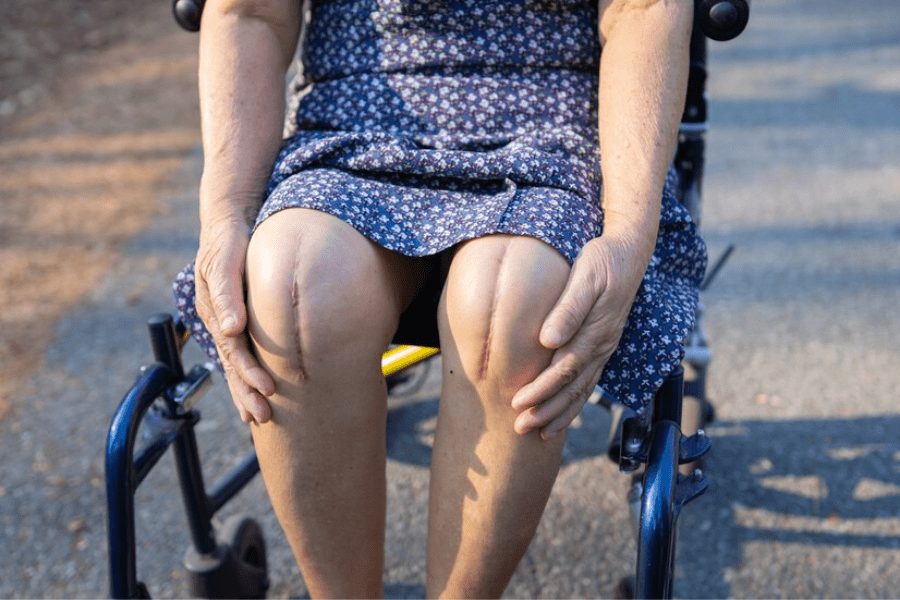ALS - Amyotrophic Lateral Sclerosis
Overview

So, have you heard of ALS? It's also known as Lou Gehrig’s disease and it's a condition that affects the nerve cells in the brain and spinal cord.
These cells are responsible for controlling voluntary muscle movement and breathing.
As the disease progresses, the cells start to degenerate and die, which causes the muscles to weaken, twitch and waste away.
Over time, people with ALS may lose their ability to walk, talk, chew and even breathe. It's a progressive disease, which means that the symptoms tend to get worse over time.
It's a tough condition to deal with, but there are treatments available that can help manage the symptoms and improve the quality of life for those affected.
Symptoms
Some of the common symptoms of this disease are:
• Muscle Weakness: Gradual weakening and wasting of muscles, starting in hands, feet, or limbs, eventually affecting daily tasks like walking, writing, and speaking.
• Muscle Twitching (Fasciculations): Involuntary mscle cramps or spasms observed in affected muscles can be a source of discomfort and concern for the patient.
• Muscle Stiffness and Cramps: Tightness, stiffness, and cramps in muscles that can make it difficult to move and perform activities of daily living.
• Difficulty in Speaking: As the disease progresses and affects the muscles responsible for speech, people with ALS may have trouble speaking clearly and loudly.
• Difficulty in Swallowing: ALS can affect the muscles used for swallowing, making it challenging to eat and drink normally.
• Difficulty in Breathing: ALS can also affect the muscles responsible for breathing, leading to shortness of breath, difficulty breathing, and respiratory failure.
Causes & Risks
Genetic factors:
• In about 5-10% of cases, ALS is inherited, referred to as familial ALS.
• Several gene mutations, including C9orf72, SOD1, and FUS, have been identified as being linked to familial ALS.
• These mutations can lead to the malfunctioning of motor neurons, contributing to the development of ALS.
Sporadic ALS:
• The majority of ALS cases (90-95%) are sporadic, meaning they occur without a clear familial history.
• Sporadic cases are likely to involve genetic, environmental, and lifestyle factors.
Environmental factors:
• Exposure to certain environmental toxins or substances has been suggested as potential risk factors for ALS.
• Heavy metals, pesticides, chemicals, and other environmental factors are possible risks, although the direct association is not fully established.
Test & Diagnosis
• Medical History and Exam: Reviewing medical history and assessing muscle strength, reflexes, and coordination through a physical examination.
• EMG and Nerve Tests: Electromyography (EMG) checks muscle and nerve electrical activity, helping identify abnormal patterns in affected muscles.
• Imaging Studies: MRI or other scans rule out alternative conditions, examining the brain and spinal cord for structural irregularities.
• Blood and Urine Tests: Analyzing samples eliminates other potential causes or detects ALS-related biomarkers.
• Clinical Criteria: Diagnosis relies on established criteria, considering symptoms, observed signs, and progression.
• Genetic Testing: Genetic tests identify specific mutations for familial ALS cases or a family history.
• Specialized Tests: Biopsies, spinal taps, or neurological assessments may be used in specific cases for diagnosis or excluding other conditions.
Treatment
• Medications: Riluzole and Edaravone can slow ALS progression. Other medications address symptoms like cramps, pain, spasticity, or excess saliva.
• Rehabilitation Therapies: Physical and occupational therapy maintains mobility, enhances muscle strength, and aids daily activities.
• Speech and Swallowing Therapy: Specialists assist with speech (dysarthria) and swallowing (dysphagia) challenges.
• Assistive Devices: Wheelchairs, braces, and communication tools enhance independence.
• Nutritional Support: Dietitians guide nutrition and manage swallowing difficulties.
• Breathing Support: Ventilation may be needed as respiratory muscles weaken.
• Psychological Support: Mental health professionals and support groups offer emotional assistance.
Living With
Living with Amyotrophic Lateral Sclerosis (ALS) can be an incredibly challenging experience.
Those affected by this condition must adapt to progressive muscle weakness, which often means using assistive devices and modifying their homes accordingly.
Accessing supportive care from a diverse healthcare team or healthcare planner is vital for managing symptoms and maintaining a good quality of life.
Nutritional challenges arising from swallowing difficulties require collaboration with dietitians, while speech issues require alternative communication methods.
Emotional support, including counseling and support groups, is also incredibly important for coping with the emotional toll of ALS.
Caregivers play a critical role in providing support, but it's important for them to balance their caregiving responsibilities with self-care. Advance care planning can ensure that an individual's preferences are respected, while engaging with ALS advocacy groups can help to build community support, resources, and advancements in research and awareness.
Complications
• Amyotrophic Lateral Sclerosis (ALS) is a debilitating disease that gradually affects various aspects of life.
• As the disease progresses, breathing muscles weaken, leading to respiratory difficulties such as shortness of breath and an increased risk of respiratory infections.
• Dysphagia, or difficulty swallowing, can cause choking, aspiration pneumonia, malnutrition, and dehydration.
• Communication becomes challenging due to weakened speech muscles, affecting speech and social interactions.
• Muscle cramps, spasms, and twitching can cause discomfort and hinder daily activities. The emotional impact of the disease is profound, causing distress, anxiety, depression, and stress for both patients and caregivers.
• A comprehensive and supportive approach is essential to manage these multifaceted challenges. With proper care and support, individuals with ALS can maintain their quality of life and enhance their well-being.

The Content is not intended to be a substitute for professional medical advice, diagnosis, or treatment. Always seek the advice of your physician or other qualified health provider with any questions you may have regarding a medical condition.
Know more about
Our Healthcare Planner
Personal Health Planner at BNC is a support staff who listens to your concerns and connects you with a Neuro Care provider. They prioritize your needs and create a trusting relationship between you and the provider.
Three fundamental values we can assure you:
1. Personalized Healthcare.
2. Most advanced robotic therapies
3. Transparent pricing





